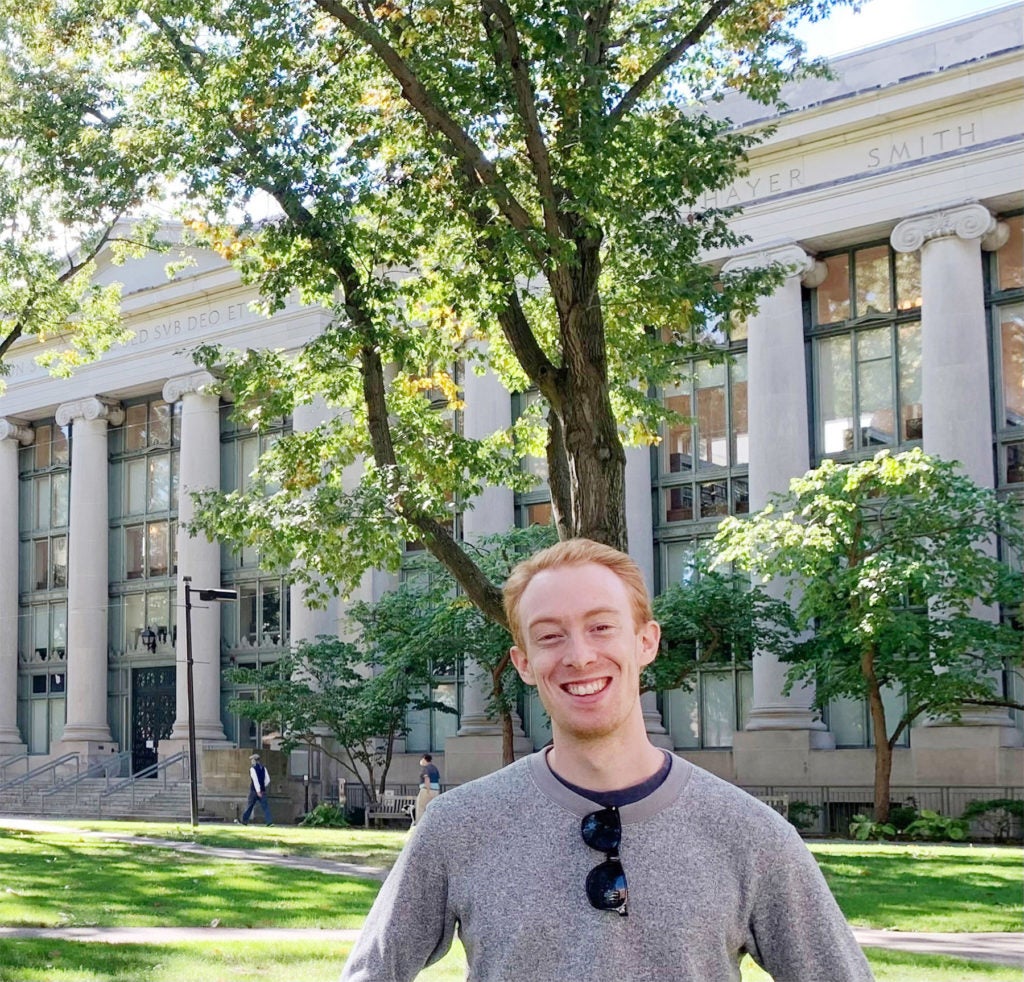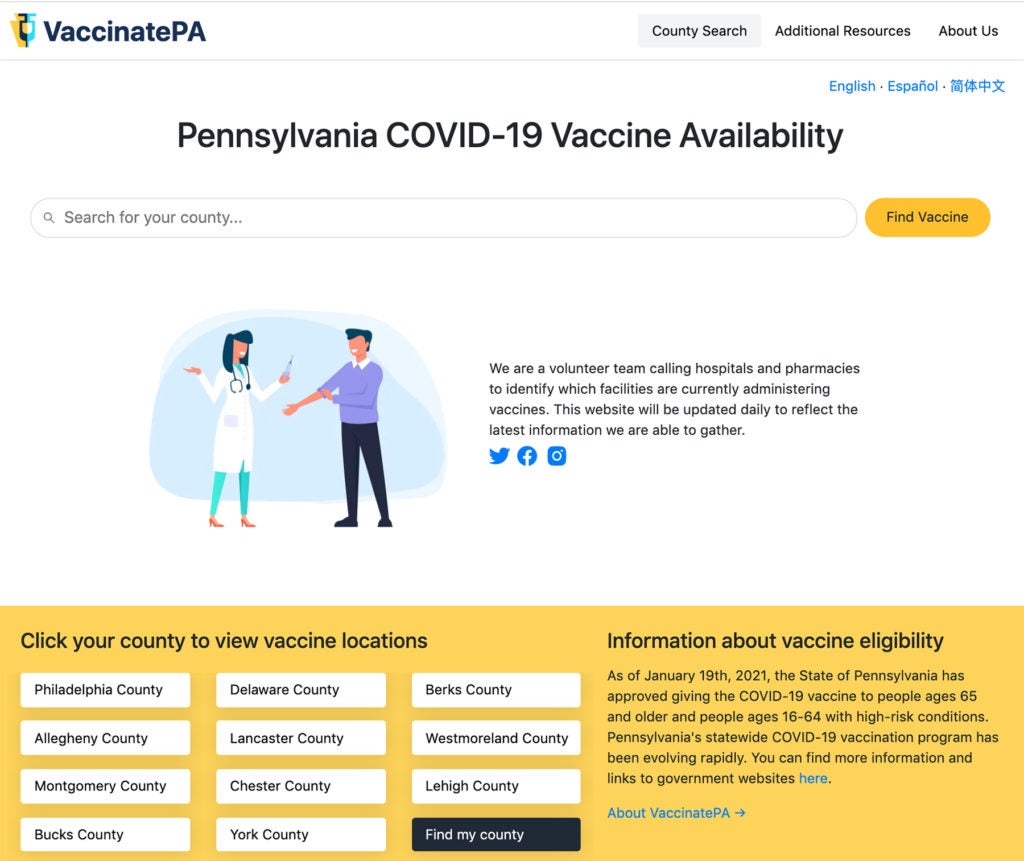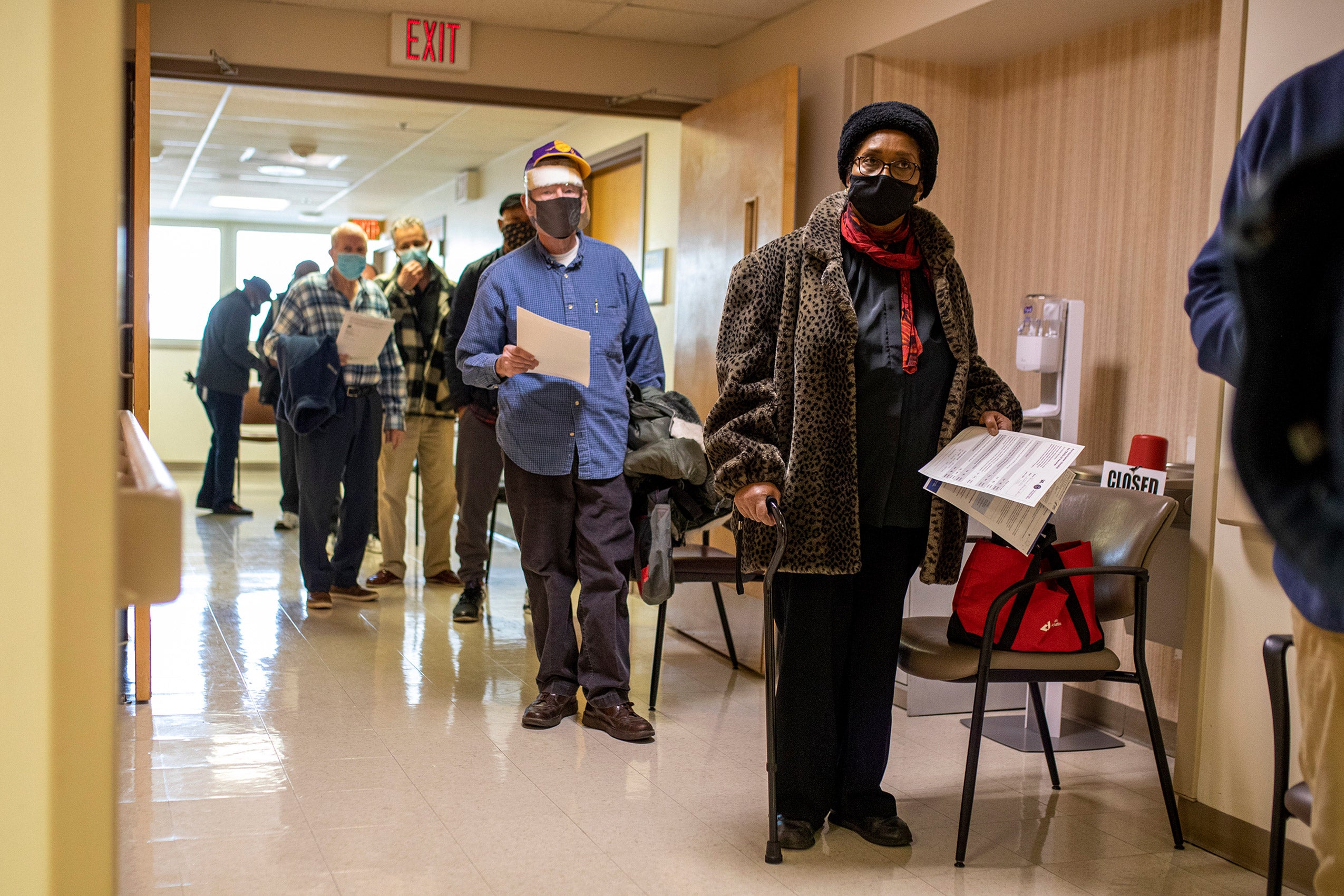The images and stories are all too familiar.
Lines of older adults snaking through city blocks, some waiting overnight with camping chairs and thick blankets. Others trying to navigate Byzantine websites while desperate relatives wait on busy phone lines for hours on end. Despite the arrival of the Moderna and Pfizer vaccines, even the most vulnerable Americans have faced countless logistical barriers to signing up for their shot, prolonging a pandemic that began more than a year ago.
Disheartened by tales from family and friends frustrated by his home state’s distribution system, Seth Rubinstein ’22, a second year student at Harvard Law School, knew he wanted to get involved. VaccinatePA.org, a website he founded with two undergraduates, has already helped more than 275,000 Pennsylvanians better understand their options and access appointments for the vaccine.
“There is a lot of stress and anxiety that comes with the lack of information, lack of clarity, lack of transparency around the vaccine,” says Rubinstein. “Once you have to place four or five or six phone calls and continually hear no, you don’t know where else to turn. A lot of folks had just given up.”

Although the federal government supported the vaccine’s development and manufacture, it left distribution — and coordination — largely to the states. The rollout has not always been smooth, and Pennsylvania is no exception: there, those eligible for the vaccine must find a nearby location from a patchwork map of healthcare systems, clinics, mass vaccination sites, and pharmacies, each with its own registration process and supply level.
“There are two major problems right now,” says Rubinstein. “First, there is just not enough vaccine to go around. But even for the vaccine inventory that is out there, it’s really been a free-for-all for folks to figure out where it is available at any given time, and how they can schedule appointments.”
Rubinstein, who spent five years working at Microsoft and Uber, was drawn to HLS to more deeply investigate where technology and the law intersect. As a student, he has been inspired by courses on digital policy by HLS professors Martha Minow, Cynthia Dwork, and Susan Crawford, who “helped me think critically about fair, equitable use of technology in helping to solve societal issues,” Rubinstein says.
His experience in tech and at law school suggested that the main issue with the vaccine distribution was the user — or client — experience. As he saw it, Pennsylvanians needed a one-stop source for real-time data, not only about where one could theoretically get the vaccine, but also which locations actually had supply in stock and were actively accepting appointments.
After doing some initial brainstorming, Rubinstein connected with two computer science students at the University of Pittsburgh, Richie Goulazian and Ming Wang, who were also interested in solving the vaccine distribution problem in their state. Together, they built VaccinatePA.org, which allows users to search for vaccination sites by county, then reports which locations have the vaccine and are accepting sign-ups. Every day, dozens of volunteers call hundreds of facilities across the state to collect the latest information on their vaccine availability and registration processes, and then publish this centrally on the site, which is also available in Spanish, Chinese and other languages.

Rubinstein notes that his list of volunteers continues to grow, especially among senior citizens who originally found the website for their own use, then signed on to help others do the same. “We recently developed a system to enable almost anybody to place phone calls to these facilities on our behalf,” he says.
According to Rubinstein, more than a quarter of a million individuals have used VaccinatePA.org to find information about their vaccine options since the site’s launch in late January. The team has also received more than 700 emails and messages from users who were grateful for information or signed up for inoculation.
Rubinstein looks forward to serving a larger number of vaccine-seekers as eligibility in Pennsylvania expands. In the meantime, he continues to think about his site and the way it fits into bigger picture questions he is exploring at HLS about the government and its role—and the part data and technology can play in answering them.
“I think that the vaccine rollout, and not just in Pennsylvania, but across the country, is one example of the kind of really big operational issues that affect society,” he says. “This raises intriguing questions for me, such as whose responsibility is this? And what are those responsibilities? How well are we doing, and how can we do it better?”
